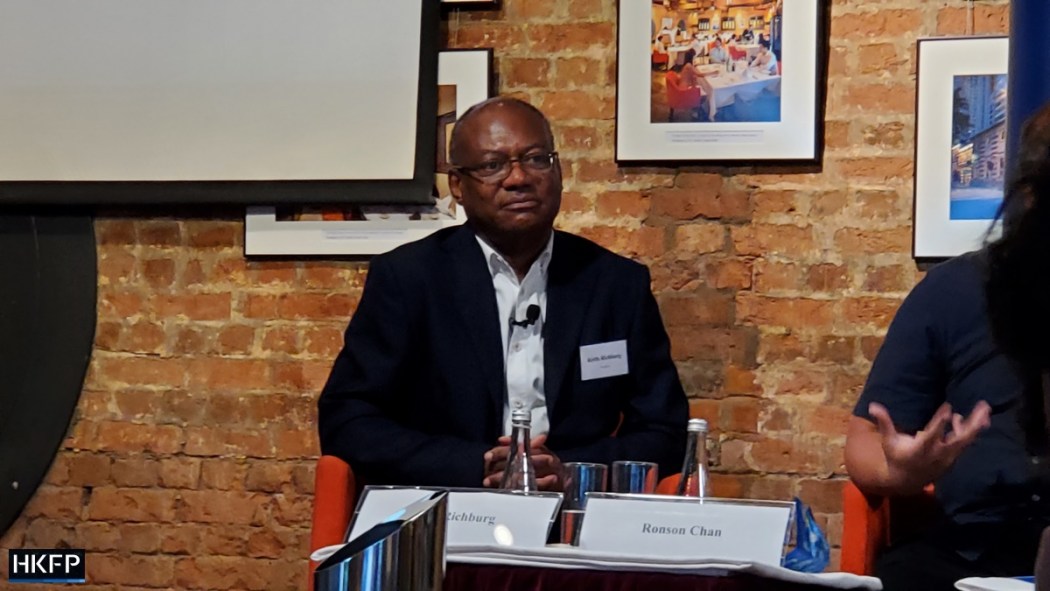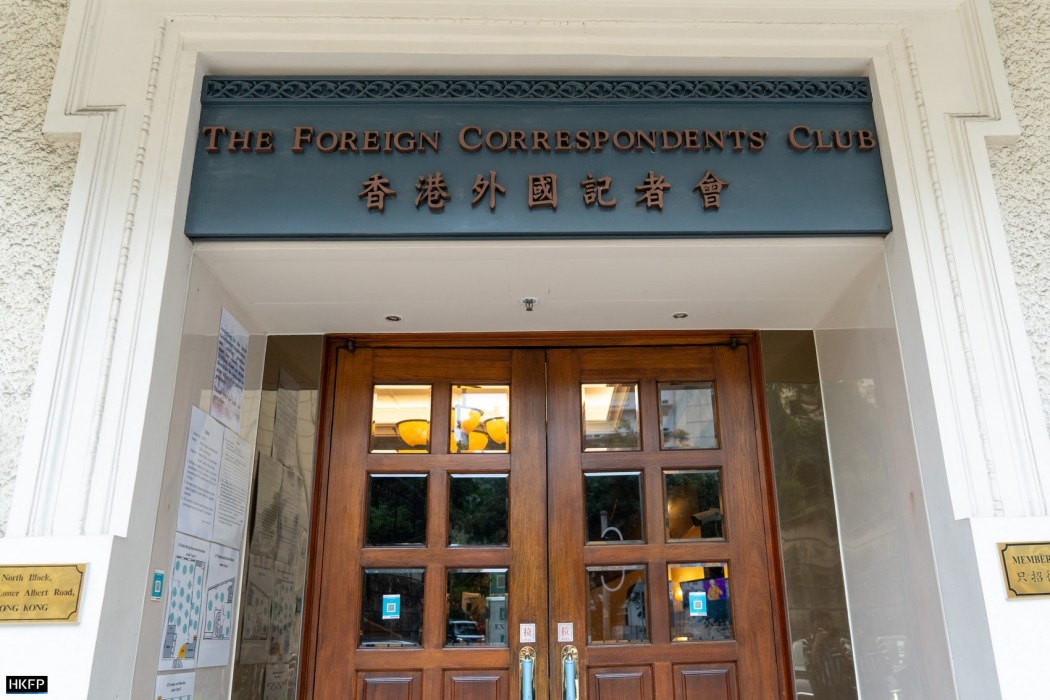The president of Hong Kong’s Foreign Correspondents’ Club (FCC) said on Monday that the club still has a “role to play” following its decision to cancel this year’s Human Right Press Awards, citing legal risks.
The club last month announced it would suspend the journalism awards, a move that triggered the resignation of a member of the FCC board and eight members from the club’s Press Freedom Committee. Sources close to the matter told HKFP it was because disbanded outlet Stand News had won a number of titles.

According to the FCC website, the club’s core mission is to defend press freedom, a role it says has never “been more vital.”
Speaking at a talk on Monday about the state of press freedom in the city, FCC President Keith Richburg said there were “still things the FCC can do.”
“I think there’s still things we can do here, but again we have to do it within the law… we have to know when we can navigate the red lines if we can,” he said.
“Access to information, journalists being able to stand up and ask questions at press conferences, the government not weaponising the visa process,” Richburg added. “These are all things the FCC can still speak out about and should speak out about.”
“But there may be some instances where we say, well, we’re gonna be treading a little bit too close to a red line… that might get the whole club shut down.”

Richburg was addressing a lunchtime panel at the FCC alongside Ronson Chan, chairperson of the Hong Kong Journalists Association (HKJA), and Sharron Fast, a media law lecturer at the University of Hong Kong.
Acknowledging the vagueness of the national security law, Richburg said “journalists need to stop looking backwards and start looking forwards.”
When asked by Chan whether he may be “too optimistic,” Richburg said he tries to be an optimist and has been “reporting from authoritarian countries for 30 years, many of them more restrictive than Hong Kong.”
Chan, a former editor at Stand News before the local outlet halted operations in December following national security raids and arrests, recounted the closure of three independent media outlets – Apple Daily, Stand News and Citizen News – in the past year.

He said journalism graduates faced a “dilemma” of deciding to work in a mainstream media outlet or an independent outlet. “If they work in a relatively independent news agency… you may have chance to getting arrested or charged. You never know how or when you have to face some challenges,” Chan said.
Hong Kong fell 68 places to 148th in a press freedom index published by watchdog Reporters Without Borders this year, putting it below Indonesia, Singapore and the Philippines.
‘The best decision’ in the club’s interests
The Human Rights Press Awards were meant to take place on May 3, which is also World Press Freedom Day. In late April, the FCC announced that it would not hold the awards as the club did not “wish unintentionally to violate the law.”
The journalism school at the Arizona State University, in the US, said earlier in May that it would take over the organisation and hosting of the awards.
Answering a question from HKFP, Richburg denied that the club – consisting largely of expatriates working in the media and other industries – occupied a position of privilege amid the uncertainties of the city’s political climate.

“The idea that we have some kind of privileged position or some kind of protection because we’re foreigners? I don’t buy that at all. We made the best decision we could based on the interests of the club,” Richburg said.
The HKJA, the city’s largest journalist group, has been investigated by the government’s Registry of Trade Unions. It was ordered to provide financial information and explain some of its social media posts in January.
Chan himself had his home searched by police in December, when Stand News saw its office raided and staff arrested. Two former editors have been held for over five months since they were charged with allegedly conspiring to publish seditious publications.

In response to a question from HKFP about how he felt about the cancellation of the awards, Chan said he did not blame the FCC. “I would just hope that… if there’s any problem… we can know it earlier,” he said.
Chan said after that he thought the decision was “very sudden” and “regretful,” adding that he was not consulted on it.
The Human Rights Press Awards were founded in 1996. They were hosted by the FCC in partnership with the HKJA and Amnesty International’s Hong Kong office, which closed last October.
Support HKFP | Policies & Ethics | Error/typo? | Contact Us | Newsletter | Transparency & Annual Report | Apps
Help safeguard press freedom & keep HKFP free for all readers by supporting our team

LATEST FROM HKFP
HKFP has an impartial stance, transparent funding, and balanced coverage guided by an Ethics Code and Corrections Policy.
Support press freedom & help us surpass 1,000 monthly Patrons: 100% independent, governed by an ethics code & not-for-profit.










